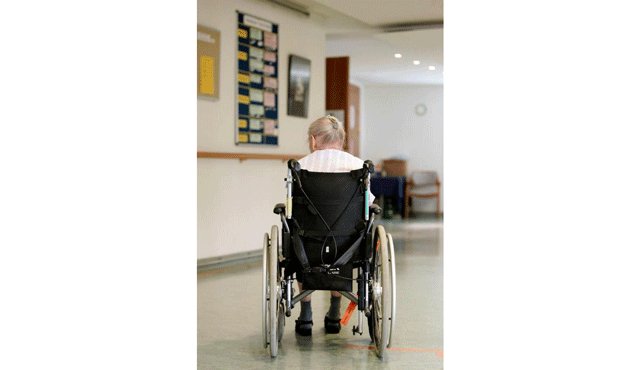HOUSTON (CNS) — A woman religious suffering from metastatic breast cancer in the final stages received medication to ease severe pain and thanked the doctors and nurses.
“Now that the pain is tolerable, I can start praying again,” the sister said, according to Dr. Constantino Benedetti, of Ohio State University, speaking on effective control of physical pain Sept. 17 at the Palliative Care and Spirituality for Life conference.
The event, held at the Houston Methodist Research Institute, was a joint project of the Vatican’s Pontifical Academy for Life, Houston Methodist and the University of Texas MD Anderson Cancer Center with participation by the Archdiocese of Galveston-Houston.
Dr. Eduardo Bruera, medical director of the Supportive Care Center at MD Anderson, said, “Where is your mother going to die? Where and how are you going to die?”
Families must ask and answer these questions to help the medical staff treat the whole person, not just the disease, he said. They are important to discuss before any illness or accident since hospitals are the location of death for 65 percent of people.
Many doctors are not specifically trained in pain management, Benedetti said. While 87 percent of veterinary medicine staff are trained in pain management for animals, only 31 percent of nurses and 16 percent of medical students have training to manage pain in people.
Also, medical staff are limited by the Centers for Disease Control in giving pain management, with 50 milligrams of morphine available to patients in severe pain while addiction is treated with up to 300 to 1,000 milligrams.
Medical specialties and technologies, while allowing people to live longer, also create a narrow focus by physicians and nurses of not seeing the whole person. In addition to treating the disease, alleviating pain and suffering, there also can be treatments for depression and anxiety that come with terminal illnesses.
The spirituality and faith of the person and his or her family are important factors that hospital staff must take into account by the conference speakers, including chaplains, emphasized.
Dr. Tracy Balboni, of Harvard University and the Dana-Farber/Brigham and Women’s Cancer Center, who has a master’s degree in public health in addition to a medical degree, shared this perspective: “One patient with metastatic breast cancer said when she walks into the hospital, she feels herself diminished. The medical staff looks at her as if ‘all I am is a body full of tumors that are killing me.'”
Dr. Robert Fine, of Baylor Scott & White Health, which is Texas’ largest not-for-profit health system, discussed workings of the human spirit in palliative care, which can improve the quality of life of patients and their families faced with life-threatening illnesses.
Fine pointed to reports showing that 75 percent of people in the U.S. believe in a personal God and that 75 percent of physicians also believe in God, but compartmentalize these views to keep them outside of their profession.
But not all do this, he indicated. Fine quoted poet and cardiologist Dr. John Stone, of Emory University School of Medicine, who wrote “Gaudeamus Igitur” (“Therefore Let Us Rejoice”) that in part reads, “For death will give the final examination and everyone will pass … whatever kingdom will come.”
Such compartmentalization and focus on treating the disease and not the person may explain some of the reasons why palliative care rather than hospice has not been incorporated into many hospitals, although it shows monetary savings for hospitals and families, speakers said.
Plus, vying for grant and budget dollars with competing medical departments depends on research data, though measuring less pain, depression and anxiety may be intangible.
“You can have the pain chart from one to 10, which I don’t really like to use anyway. But how do you measure deep despair? We need to give voice to suffering, where many of our patients are screaming out in silence,” said Dr. Christina Puchalski, of the George Washington University Institute for Spirituality and Health.
During the Sept. 16-18 conference, a historic joint agreement was reached between the Pontifical Academy for Life, which focuses on questions of medical ethics and the dignity of life, and the Texas Conference of the United Methodist Church.
The agreement, which supports the easing of suffering and pain at the end of life, but limits medical technology and rejects euthanasia, was signed by Archbishop Vincenzo Paglia, president of the Pontifical Academy for Life, and Methodist Bishop Scott Jones with Cardinal Daniel N. DiNardo of Galveston-Houston participating.
Mauro Ferrari, president of the Houston Methodist Research Institute and a member of the Pontifical Academy for Life chosen by Pope Francis, described it as a “very powerful document for our brothers and sisters in their time of need and their families.”
He knows from personal experience: His wife and the mother of their children, Marialuisa Ferrari, died at 32 of cancer. She was in a great deal of pain before she died.
He keeps her memory alive with the annual Marialuisa Lectureship for Life, presented this year to Archbishop Paglia and the Pontifical Academy for Life in honor of Pope Francis.

